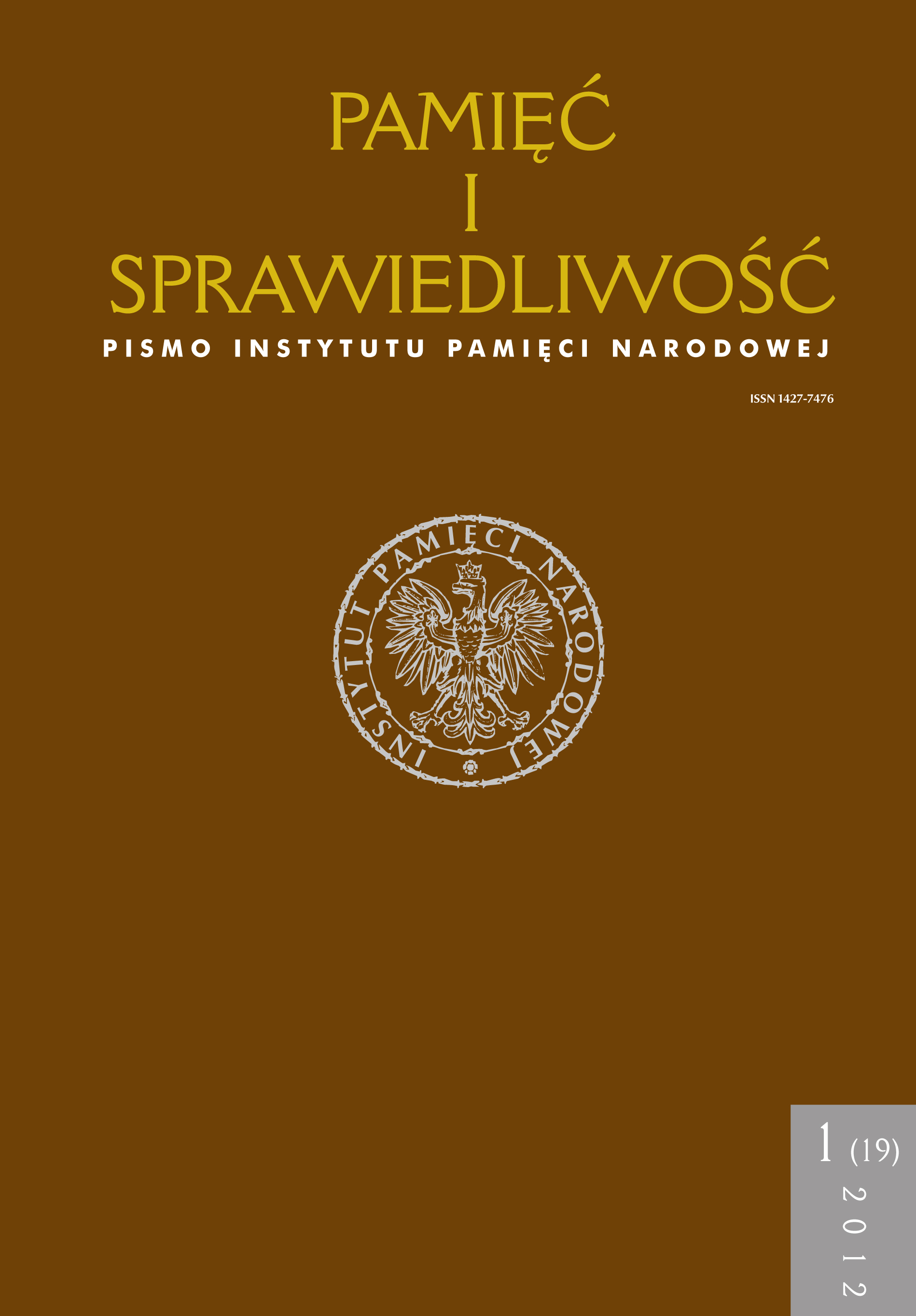Polski Październik ’56 a lubelski Związek Bojowników o Wolność i Demokrację
Pamięć i Sprawiedliwość, Bd. 19 Nr. 1 (2012), pages: 45-63
Publication date: 2012-06-30
Abstract
Literaturhinweise
A. Friszke, Przystosowanie i opór. Studia z dziejów PRL, Warszawa 2007, Aparat bezpieczeństwa w Polsce. Kadra kierownicza, t. 1: 1944–1956, red. K. Szwagrzyk, Warszawa 2005, Księga partyzantów Lubelszczyzny. PolskaPartia Robotnicza, Gwardia Ludowa i Armia Ludowa, cz. 1, wstęp i red. E. Olszewski, Lublin 1989 J. Wawrzyniak, ZBoWiD i pamięć drugiej wojny światowej 1949–1969, Warszawa 2010, A. Stelmach, Historia ZBoWiD, b.d., (niepublikowany maszynopis pracy w Archiwum ZG Związku Kombatantów RP i byłych Więźniów Politycznych w Warszawie) J. Wawrzyniak, Związek Bojowników o Wolność i Demokrację – ewolucja ideologii a więź grupowa [w:] PRL – trwanie i zmiana, red. D. Stola i M. Zaremba, Warszawa 2003, s. 351-372. Słownik biograficzny działaczy polskiego ruchu robotniczego, t. 3, red. F. Tych, Warszawa 1992, P. Byszewski, Marian Gołębiewski [w:] Opozycja w PRL. Słownik biograficzny, red. J. Skórzyński, P. Sowiński, M. Strasz, t. 1, Warszawa 2000, s. 106-107. G. Waligóra, Ruch Obrony Praw Człowieka i Obywatela 1977–1981, Warszawa 2006 Ł. Bednarski, ZBoWiD w okresie odwilży popaździernikowej 1956–1959, „Annales UMCS”, sec. F., 2010, vol. LXV, z. 2.
 Język Polski
Język Polski
 English
English
 Deutsch
Deutsch
 Français (France)
Français (France)
 Italiano
Italiano
 Русский
Русский


 PDF (Język Polski)
PDF (Język Polski)
